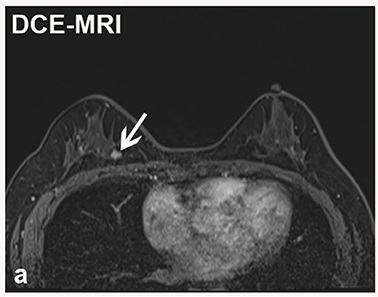MRI Outperforms Pathology in Preoperative Breast Tumor Measurement

Recent research published in the *Annals of Surgical Oncology* demonstrates that Magnetic Resonance Imaging (MRI) significantly surpasses traditional pathology methods for accurately measuring breast tumors prior to surgical intervention. The study, led by Dr. Abigail Daly of Massachusetts General Hospital, analyzed data from 460 breast cancer patients treated between 2019 and 2024, revealing that MRI showed a concordance rate of 62% with pathological measurements of tumor size, compared to 57% for mammography and 53% for ultrasound.
Accurate preoperative imaging is critical as even minor discrepancies in tumor size can drastically influence treatment strategies. Dr. Daly's team noted that the average tumor size recorded via pathology was 17.3 mm. MRI not only provided the highest overall accuracy but also excelled in T-stage classification, achieving an impressive 89% concordance rate. Furthermore, MRI was found to slightly overestimate tumor size, reporting an average of 18.4 mm, while both mammography and ultrasound tended to underestimate tumor dimensions, measuring 14.8 mm and 14.3 mm respectively.
The findings underscore the importance of selecting appropriate imaging modalities in surgical planning. "A combined imaging approach using MRI and ultrasound may enhance preoperative size estimation," Dr. Daly concluded, emphasizing the potential benefits of utilizing multiple imaging techniques to ensure optimal treatment outcomes.
The study illuminates a significant trend in breast cancer diagnostics, suggesting that MRI should be considered the gold standard for preoperative assessments. As healthcare continues to evolve with technological advancements, the implications of these findings could reshape surgical practices and patient management strategies in the field of oncology.
Historically, imaging techniques have evolved alongside advancements in technology. MRI was introduced for breast imaging in the early 1990s and has since gained prominence due to its superior soft tissue contrast compared to other modalities. However, its integration into standard preoperative protocols has varied across medical institutions, often influenced by factors such as accessibility, cost, and the need for specialized training.
The implications of this research extend beyond individual patient outcomes; they suggest a potential shift in the standard of care for breast cancer diagnostics. As healthcare professionals aim for precision in treatment, the reliance on MRI for preoperative measurements may increase, prompting further studies to explore its efficacy in diverse populations and varying tumor characteristics.
Experts in the field have lauded the study's robust methodology and significant findings. Dr. Sarah Johnson, an oncologist at Johns Hopkins University, remarked, "This research could lead to a paradigm shift in how we approach breast cancer treatment planning. The high concordance rates achieved by MRI should compel practitioners to reevaluate their imaging strategies."
Additionally, Dr. Michael Lee, a radiologist at Stanford University, highlighted that while MRI shows promise, it is crucial to consider the context of each patient's case. "While MRI is superior in many aspects, it's essential to approach imaging holistically, considering factors such as tumor density and patient-specific variables that may affect imaging outcomes," he stated.
As the healthcare landscape continues to adapt, the integration of advanced imaging technologies like MRI into routine practice may not only enhance diagnostic accuracy but also improve overall patient care. The future of breast cancer diagnosis and treatment could be significantly influenced by these findings, paving the way for more precise, individualized medical interventions.
Advertisement
Tags
Advertisement





